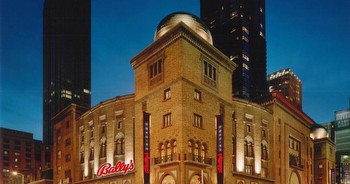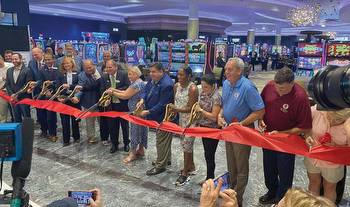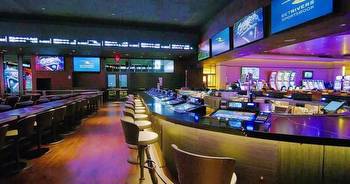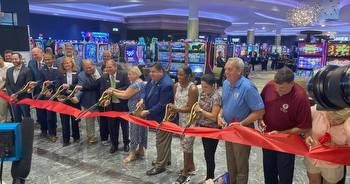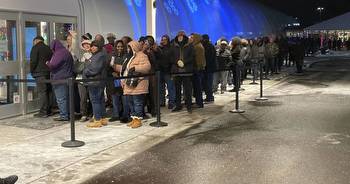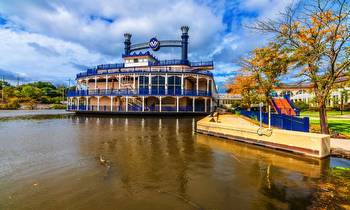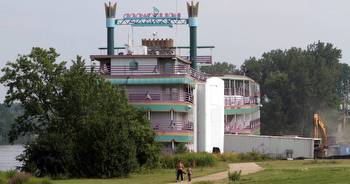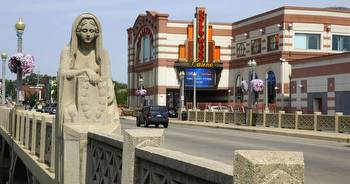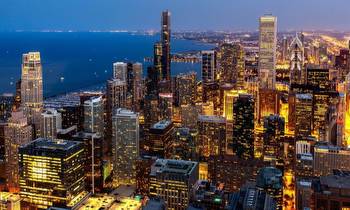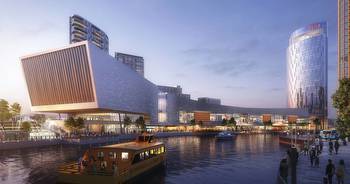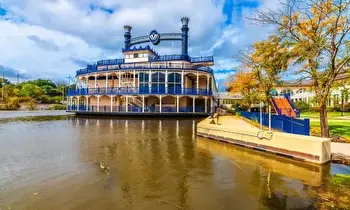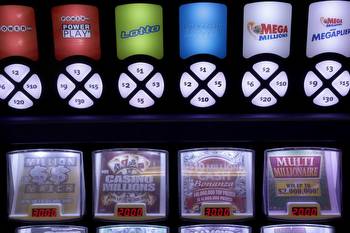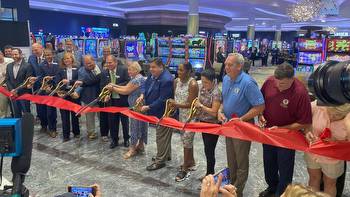Chicago's entry into casino game not deterring suburban sites
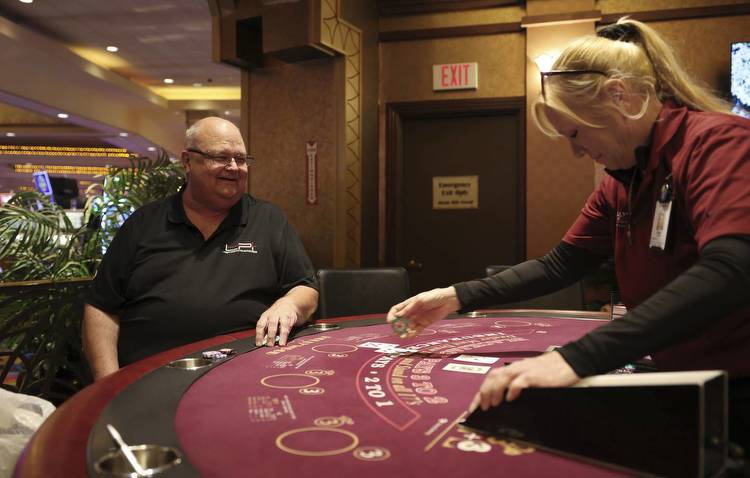
After years of delays, the fading casino gambling industry in Illinois is pushing for a comeback — not only by building six new casinos statewide, but replacing existing riverboats with new land-based resorts in Aurora and Joliet.
Despite a gigantic casino planned for Chicago, the suburban casinos are betting that they cannot only compete but thrive with state-of-the-art facilities near busy expressways to attract local gamblers.
New casinos in north suburban Waukegan and Homewood/East Hazel Crest in the south suburbs, along with Aurora, Elgin and Joliet, are far enough from the city that they should be able to build on their own base of nearby patrons, said Chris Grove, partner at Eilers & Krejcik Gaming in California.
“Each has a relatively distinct core audience it will market to,” Grove said. “I also don’t think it’s the logic for Chicago to be drawing from the suburbs. For many consumers … convenience is a major factor.”
While a recent state report warned of oversaturation cannibalizing the market, Grove said, “I don’t think people would embark on these large capital expenditures if they didn’t foresee growth.”
Driven largely by sports and video gambling,Illinois recently moved to second in the nation in gambling revenues, behind Nevada. Expansion is expected to create more jobs and tax revenue for the state. Watchdogs warn that it’s also likely to lead to more problem gambling and economic hardship, sometimes for people who can least afford it.
Unfazed by such warnings, lawmakers in 2019 authorized six new casinos, in Chicago, the south suburbs, Danville, Rockford, Waukegan and near Carbondale — along with expanding existing casinos and video gaming.
Now, those plans are starting to come to fruition. Waukegan plans to open a temporary location by December. Full House Resorts promises that its permanent American Place casino will have an Italianate villa hotel with luxury suites, and a restaurant “to rival the finest restaurants in Chicago.” Hard Rock Rockford is already operating a preliminary site.
Bally’s hopes to open a temporary casino in Chicago’s Medinah Temple in 2023, with its $1.7 billion permanent complex on the site of the Tribune’s newsroom and printing plant in River North by 2025. Slot machines also will be allowed at O’Hare International and Midway airports.
Joining the party, PENN Entertainment, which owns Hollywood Casinos, recently announced it plans to build new casinos to replace aging riverboats in Aurora and Joliet, where revenues in fiscal year 2022 remained far below pre-pandemic levels.
Both new projects would be built next to major expressways. In Aurora, the $360 million project calls for a modern “casino of the future,” with an event center, sportsbook and spa, and a 200-room hotel.
The Aurora casino would leave its downtown location to move next to the Chicago Premium Outlets mall on I-88. The city would provide the land and almost $60 million in financing.
In Joliet, the $185 million new building would be located in the Rock Run Crossings mixed-use project near I-80 and I-55.
“These two projects will significantly improve our offerings in the highly attractive Chicagoland market while creating hundreds of new full-time jobs for the local communities,” Penn Entertainment CEO Jay Snowden said.
For casino owners, expansion means a chance to bring back some of the business they’ve lost in recent years. Gambling has been booming in Illinois — but not for the 11 existing casinos.
Tax revenue from gambling statewide increased 39% in fiscal year 2022 to a record $1.9 billion. The big jump was due to a recovery from COVID-related declines, more video terminals, and the second full year of legalized sports betting.
While casino receipts shot up 46%, the total remained below pre-pandemic levels and continued a 20% downward trend since video gaming was legalized a decade ago in bars, restaurants and gas stations across the state. Chicago, though, has not legalized video gambling, instead preserving its market to become the largest American city with a casino. Despite the expansion, the state predicts tax revenue growth from casinos, due to a lowered tax rate and market saturation, will be “modest at best.”
Thomas Thanas, executive director of the Illinois Casino Gaming Association, said the industry has been hurt by video gaming, which has grown to 44,000 terminals — the equivalent of 36 casinos. But the industry has a new opportunity in sports betting.
Though most sports wagers are made online, Thanas said, “It opens the door for a new generation of gamblers. It’s a younger demographic that likes sports wagering.”
The gaming association had opposed casino expansion, arguing that the market was already saturated. Now that expansion is here, operators are making moves to increase traffic and improve amenities to compete. Thanas also predicted that the modern casinos will try to incorporate new technology, such as contactless cashless betting, in which players could bet with their phones and keep their accounts online.
Although some locations, such as Las Vegas and Chicago, will draw lots of tourists, Thanas said, most casinos depend primarily on customers from within 25 miles.
“The gaming industry is much like other retail businesses that rely on location,” Thanas said. “Having a facility that is highly visible and easily accessible, with parking and room for amenities, is key to the gaming industry.”
As a prime example, he pointed to the Hard Rock Casino in Gary, which moved from near downtown Gary to a new site just off I-80/94 last year, and is now the highest-grossing casino in the state.
Trying to get a jump on its competitors, the existing Grand Victoria Casino in Elgin — which was bought by Caesers Entertainment in 2020 — recently opened a new sportsbook and poker room.
Former World Series of Poker champion Chris Moneymaker played at the Grand Victoria to promote the grand opening. He said players should welcome the expansion of gambling in Illinois.
“It’s a huge difference because it gives people options,” Moneymaker said. “Having this competition definitely makes it to where the players have options and a lot more chance for promotions and better opportunities for players to get in the game.”
Customers at Elgin agreed with Moneymaker.
“It gives me more options on where to play, and that’s all good,” said poker player Paul Conway, 75, of Bartlett, who frequents Grand Victoria, but also travels to play tournaments in Hammond.
Betty York, 77, of Geneva, who plays the slots, said she hoped the competition would bring back more freebies and better payouts. “I think it’s going to get better,” she said.
Mike Strauss, 56, of Streamwood, also looked forward to seeing new poker players.
“We win by other players’ mistakes,” Strauss said. “You have more fish. They gamble, it’s going to benefit us.”
Gambling opponents say the increased outlets will create more gambling addiction.
A state study found that about 4% of adults in the state are considered to have a gambling problem, and the number in treatment nearly doubled in fiscal year 2021. An additional 8% — approximately 761,000 people — are at risk for developing a gambling problem. The state’s problem gambling helpline is 1-800-GAMBLER.
“It’s going to be everywhere,” said the Rev. Shane Hartman of the Illinois Church Action on Alcohol and Addiction Problems.
He noted that his small town of Illiopolis has only 600 residents, but five places to gamble.
“I can’t imagine being an addict. It’s on your phone. There’s no escaping it.”








